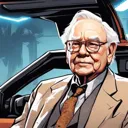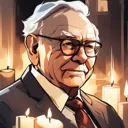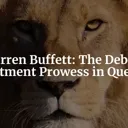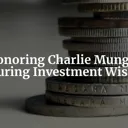Tags: History
This fanpage is not officially affiliated with Berkshire Hathaway: Disclaimer
Attention Berkshire Hathaway shareholders! Ever wondered how your favorite stock became the "Rambo stock" of Wall Street? This article draws entertaining parallels between the resilience and success of Berkshire Hathaway and John Rambo's journey, offering valuable lessons in strategic thinking, resilience, and turning adversity into advantage. Get ready for an engaging exploration of the unexpected heroes of finance and cinema!

Introduction
In the world of finance and cinema, few stories capture the essence of resilience and adaptability quite like the journey of Berkshire Hathaway on Wall Street and John Rambo's saga in 'First Blood'. At first glance, the comparison might seem as far-fetched as a hedge fund manager entering a wrestling ring. Yet, the parallels between the unexpected success of both entities, from underdog beginnings to becoming icons in their respective fields, are strikingly similar 14.
Enter Warren Buffett, the financial world's Sylvester Stallone, who transformed Berkshire Hathaway from a struggling textile mill into a box office hit on Wall Street. Just as Rambo used his survival skills to overcome seemingly insurmountable odds, Berkshire Hathaway, under Buffett's leadership, has navigated through economic turmoil and market volatility with strategic investments and an unyielding spirit 2.
This article promises to be a rich, multidimensional read, weaving together historical, political, and economic insights to explore how Berkshire Hathaway became the "Rambo stock" - resilient, powerful, and unstoppable. Through a light-hearted yet informative lens, we'll delve into the serious success of Berkshire Hathaway, drawing parallels with the cinematic journey of John Rambo. So, buckle up as we embark on an entertaining exploration of overcoming adversity, strategic pivots, and the undeniable impact of embracing one's fate.
The Origins: From Textiles to Titans
In the mid-20th century, Berkshire Hathaway's story began with as much glamour as a sock puppet theatre - a humble textile company struggling to stay afloat in a rapidly changing economy 6. Enter Warren Buffett in 1965, a visionary with an eye for undervalued companies, who saw potential where others saw a sinking ship. Much like John Rambo, a misunderstood veteran underestimated by society, Berkshire Hathaway was an underdog in the financial world 1.
The early challenges faced by both Rambo and Berkshire Hathaway set the stage for future triumphs. For Rambo, it was turning his survival skills to his advantage in the wilds of Washington state. For Berkshire Hathaway, it was Buffett's strategic pivot from textiles to insurance and investments, a move that would redefine the company's trajectory 27.
| Turning Point | Berkshire Hathaway | "First Blood" |
|---|---|---|
| Origin | Textile mill | Vietnam veteran |
| Pivot | Insurance and investments | Survival skills |
| Strategy | Value investing | Guerrilla warfare |
| Outcome | Financial titan | Cinematic icon |
The concept of "amor fati," or love of fate, played a crucial role in both stories. Rambo, outnumbered and outgunned, used his adversities to his advantage, embracing his fate with a stoic determination. Similarly, Buffett's embrace of the challenges facing Berkshire Hathaway allowed him to turn potential setbacks into opportunities for growth and success 2. This philosophy of making the most of one's circumstances, regardless of how dire they may seem, is a testament to the resilience and adaptability that define both Rambo and Berkshire Hathaway's journeys from textiles to titans.
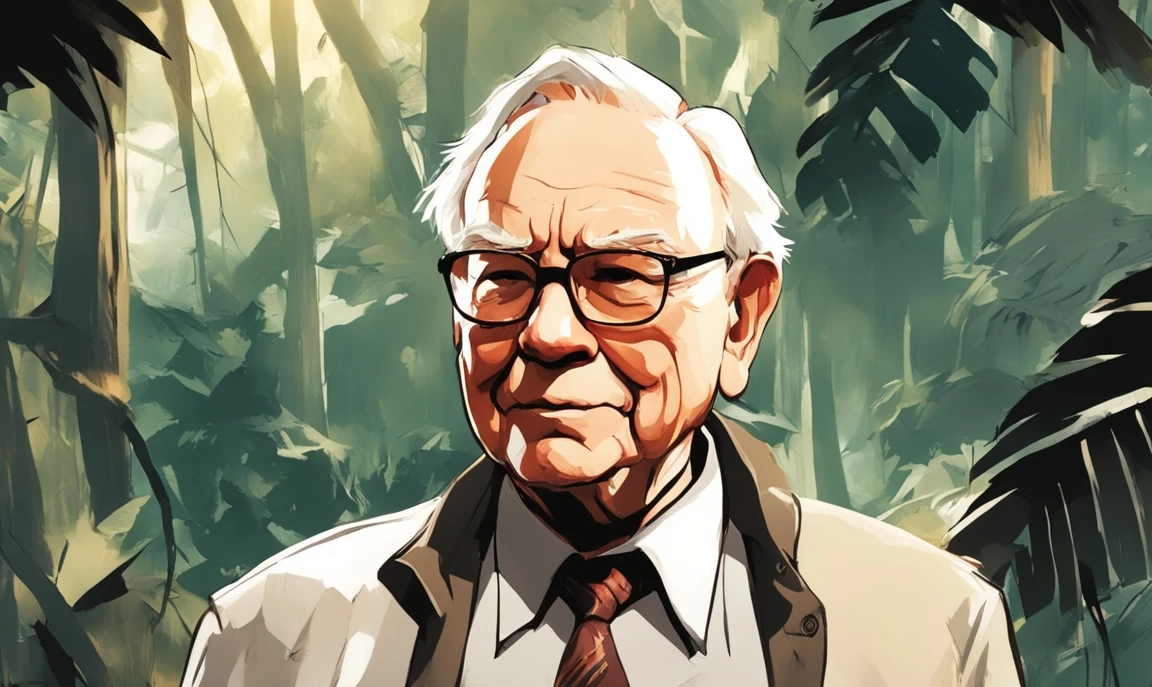
The Strategy: Berkshire's Combat Skills
In the financial jungles of Wall Street, Berkshire Hathaway, under the command of Warren Buffett, operates much like John Rambo in the wilds of Washington state—both employing guerrilla warfare tactics to outmaneuver adversaries and overcome obstacles ↗. Buffett's investment philosophy mirrors Rambo's combat skills, making the most out of limited resources and turning adversity into advantage 27.
A cornerstone of this strategy is the acquisition of property and casualty insurance companies, which has allowed Berkshire to generate massive investment capital 7. This move is akin to Rambo using the terrain to his benefit—Buffett uses these companies not just for their direct financial output but as a springboard to further conquests.
Being underestimated has served both Rambo and Berkshire well. Critics and competitors alike have often overlooked the quiet strength and resilience of Buffett's empire, much as Rambo's foes underestimated his survival skills 2. This underestimation has allowed Berkshire to strike when least expected, securing deals and acquisitions that have bolstered its market position.
Buffett's "combat skills" in the financial arena are legendary, with calculated, patient strategies that always keep the endgame in sight. Specific investments, like those in Apple and Coca-Cola, demonstrate Buffett's ability to see value where others might not, much like Rambo's knack for utilizing what he has at hand to survive and thrive. 'First Blood' remains the template for 1980s action cinema, with Stallone’s Rambo being a force of near-immortal resilience 3.
Humorously paralleling their strategies, one might imagine Buffett whispering Stallone's lines, reshaped for the financial battlefield:
This is not my war. I’m just a businessman trying to make a dollar out of fifteen cents.
Yet, it's the role of adversity that truly shapes the strategies of both Rambo and Berkshire Hathaway, leading to unexpected victories. As Rambo used his wits and surroundings to overcome seemingly insurmountable odds, so too has Berkshire Hathaway used its unique position to navigate financial crises and emerge stronger 2.
The Sequels: Building an Empire
Just as 'First Blood' spawned an entire franchise that expanded Rambo's legacy, so has Berkshire Hathaway grown and diversified, becoming a titan of industry 15. Each key acquisition by Berkshire Hathaway over the years can be likened to a sequel in the Rambo saga, each expanding the empire and solidifying its status on Wall Street.
From the purchase of See's Candies ↗ to the acquisition of BNSF Railway, Berkshire Hathaway's portfolio has grown in both size and scope, much like Rambo's increasing body count in his sequels. Yet, there's a humorous juxtaposition here: while Rambo's sequels increased in explosions and action, Berkshire's "sequels" have often been marked by strategic, calculated moves rather than brute force.
The evolution of Rambo's character over the series parallels Berkshire Hathaway's evolving investment strategy. Initially seen as a ruthless warrior, Rambo's character develops depth and complexity over time, much like how Berkshire's strategy has grown to encompass a broader range of industries and investment approaches.
The role of sequels in solidifying Rambo's status as a cultural icon is mirrored by Berkshire Hathaway's status as a Wall Street titan. Each successful acquisition and investment decision has contributed to the lore of Buffett's empire, much as each Rambo film has added to the character's legend.
Leadership and vision have been crucial in creating successful sequels, both in cinema and in business. Just as the filmmakers behind the Rambo series had to innovate and adapt to keep the franchise relevant, so too has Berkshire Hathaway under Buffett's (and possibly soon, Greg Abel's) leadership 6. The ability to foresee market trends and position the company accordingly has been key to its enduring success.
The parallels between Rambo's cinematic battles and Berkshire Hathaway's financial strategies offer a unique lens through which to view the latter's success. From guerrilla warfare tactics to building an empire through strategic acquisitions, the journey of both Rambo and Berkshire Hathaway is a testament to the power of resilience, strategic foresight, and the ability to turn adversity into advantage.
The Legacy: Cultural Impact and Financial Dominance
In the pantheon of American icons, few figures, whether fictional or real, have etched as indelible a mark on the cultural and financial landscape as John Rambo and Berkshire Hathaway. It might seem odd at first to juxtapose a cinematic character known for his guerrilla warfare tactics with a conglomerate renowned for its savvy investment strategies. Yet, upon closer examination, the parallels between the resilience and success symbolized by Rambo and Berkshire Hathaway become strikingly apparent.
The Rambo franchise, with its roots deeply embedded in the American psyche since the late 20th Century, has become synonymous with American military might and the mythos of the rugged individual overcoming insurmountable odds 5. Similarly, Berkshire Hathaway, under the stewardship of Warren Buffett, has transcended its origins as a struggling textile mill to become a titan of the investment world. Both entities, in their respective realms, have become beacons of American resilience and success.
Storytelling plays a pivotal role in both cinema and finance, crafting narratives that inspire, educate, and entertain. The tales of Rambo's survival skills and Buffett's investment acumen have not only captivated audiences but have also been meticulously studied and emulated. The educational impact of these narratives is profound, with Rambo's guerrilla tactics and Buffett's financial strategies being dissected in classrooms, boardrooms, and living rooms around the globe 27.
The "Rambo Effect" in finance, akin to its cinematic counterpart, embodies the belief in the clarity and certainty of success against all odds 5. This effect mirrors the optimism and determination that have characterized Berkshire Hathaway's journey from a textile mill to a conglomerate with a market capitalization in the hundreds of billions. It's a testament to the power of perseverance, strategic acumen, and, perhaps, a bit of serendipity.
Both Rambo and Buffett have ascended to almost mythological status in their respective fields, their exploits and wisdom often recounted with a mix of awe and humor. For instance, the transformation of Berkshire Hathaway's stock price from about $600 (Class A shares) on the eve of "First Blood's" release in 1982 to around $600,000 by February 2024 is as astonishing as any of Rambo's on-screen feats 5. This meteoric rise, akin to Rambo's survival against all odds, underscores the extraordinary journeys both have undertaken.
As we look to the future, the legacies of the Rambo franchise and Berkshire Hathaway continue to evolve. While the resonance of Rambo may have waned somewhat in the new century, apart from the 2008 installment and the anticipation surrounding a fifth movie, Berkshire Hathaway's influence on the investment world shows no signs of diminishing 5 ↗ ↗. The conglomerate's strategy of leveraging capital through property and casualty insurance companies, a tactic not unlike Rambo using his surroundings to his advantage, remains a cornerstone of its success 7.
The cultural impact and financial dominance of both Rambo and Berkshire Hathaway serve as testaments to the enduring appeal of narratives centered around overcoming adversity, strategic ingenuity, and the indomitable spirit of the American ethos. As symbols of resilience and success, both continue to inspire and educate, proving that, whether in the jungles of Vietnam or the boardrooms of Wall Street, the spirit of perseverance prevails.
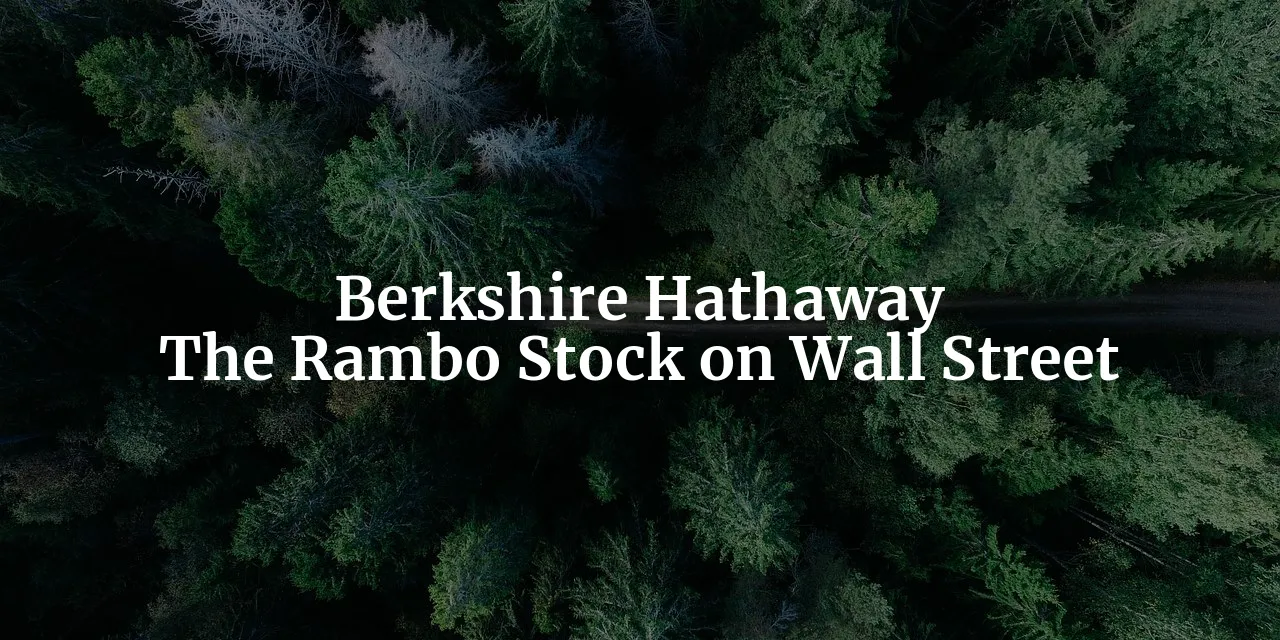
Conclusion
The parallels drawn between John Rambo's journey in "First Blood" and the rise of Berkshire Hathaway on Wall Street offer a unique and entertaining lens through which to view the latter's success. From the origins of both entities as underdogs to their strategic combat skills and the building of their respective empires, the journey of both Rambo and Berkshire Hathaway is a testament to the power of resilience, strategic foresight, and the ability to turn adversity into advantage.
The key takeaway from this exploration is the emphasis on resilience, strategic thinking, and the ability to turn adversity into advantage, which are the hallmarks of both stories. The humorous and entertaining approach to drawing these parallels makes the financial success story of Berkshire Hathaway accessible and engaging, offering valuable lessons for shareholders and investors alike.
Readers are encouraged to view challenges as opportunities, inspired by the stories of Rambo and Buffett. The enduring appeal of underdog stories in both cinema and finance serves as a reminder that sometimes the most unexpected characters become the biggest heroes. As such, readers are urged to learn from these stories and apply the lessons of resilience and strategic thinking in their own lives, both in their personal endeavors and in their investment strategies.
In the world of investments, as in the movies, the journey of both Rambo and Berkshire Hathaway serves as a reminder that with resilience, strategic acumen, and a bit of serendipity, even the most unlikely characters can emerge as heroes. So, let us all embrace the spirit of amor fati, accepting all events for a reason, and move forward with determination and strategic thinking, just like Rambo and Berkshire Hathaway.
References
-
First Blood - Wikipedia - en.wikipedia.org ↩↩↩
-
First Blood at 40: Rambo’s first outing mixed violence with vulnerability - www.theguardian.com ↩
-
Buying Berkshire Hathaway Stock In The 80s Turned This Everyday Investor Into A Billionaire - finance.yahoo.com ↩
-
How Warren Buffett Made Berkshire Hathaway a Winner - www.investopedia.com ↩↩
-
How Warren Buffett Succeeded: It's More Than Just Stock Picking - www.linkedin.com ↩↩↩↩↩


